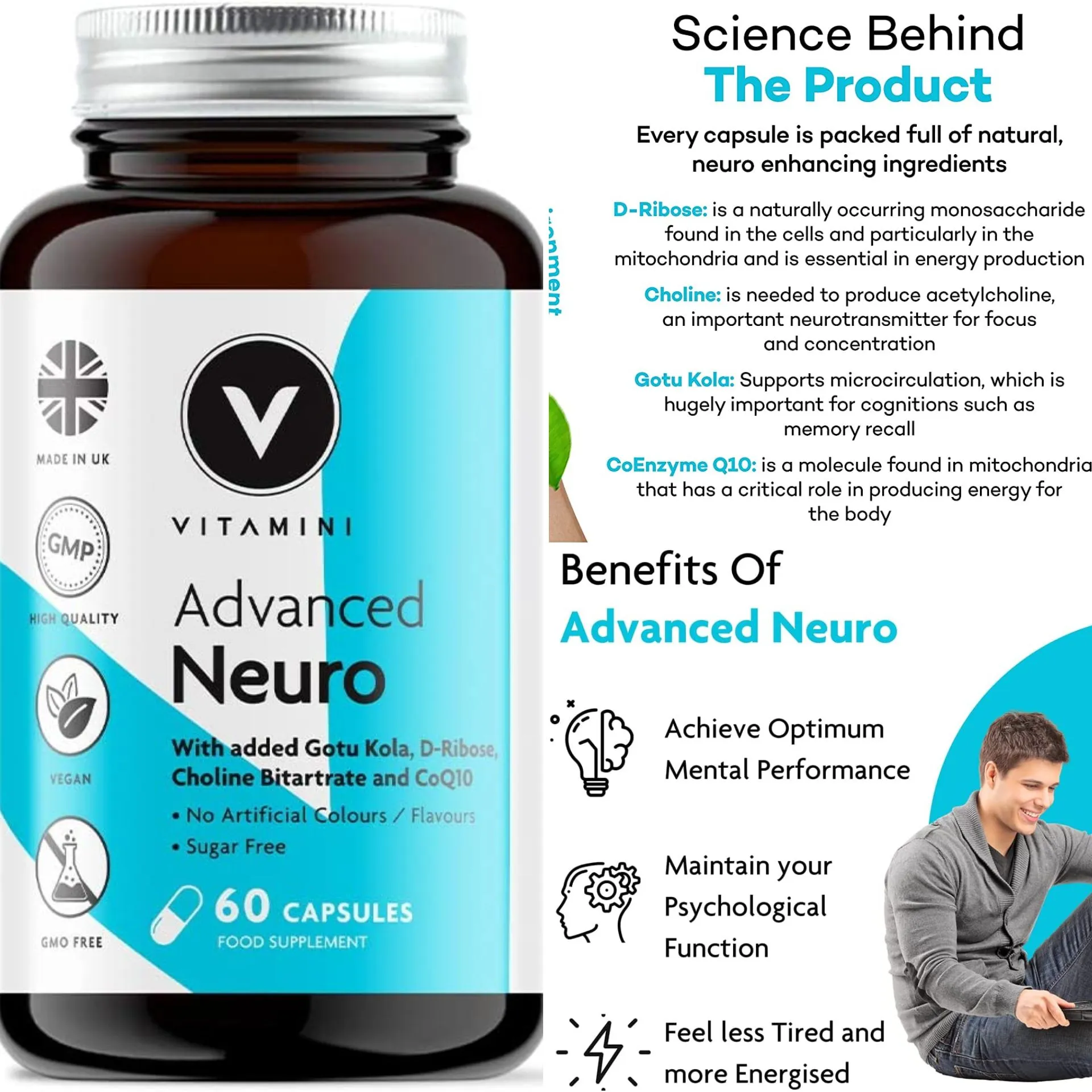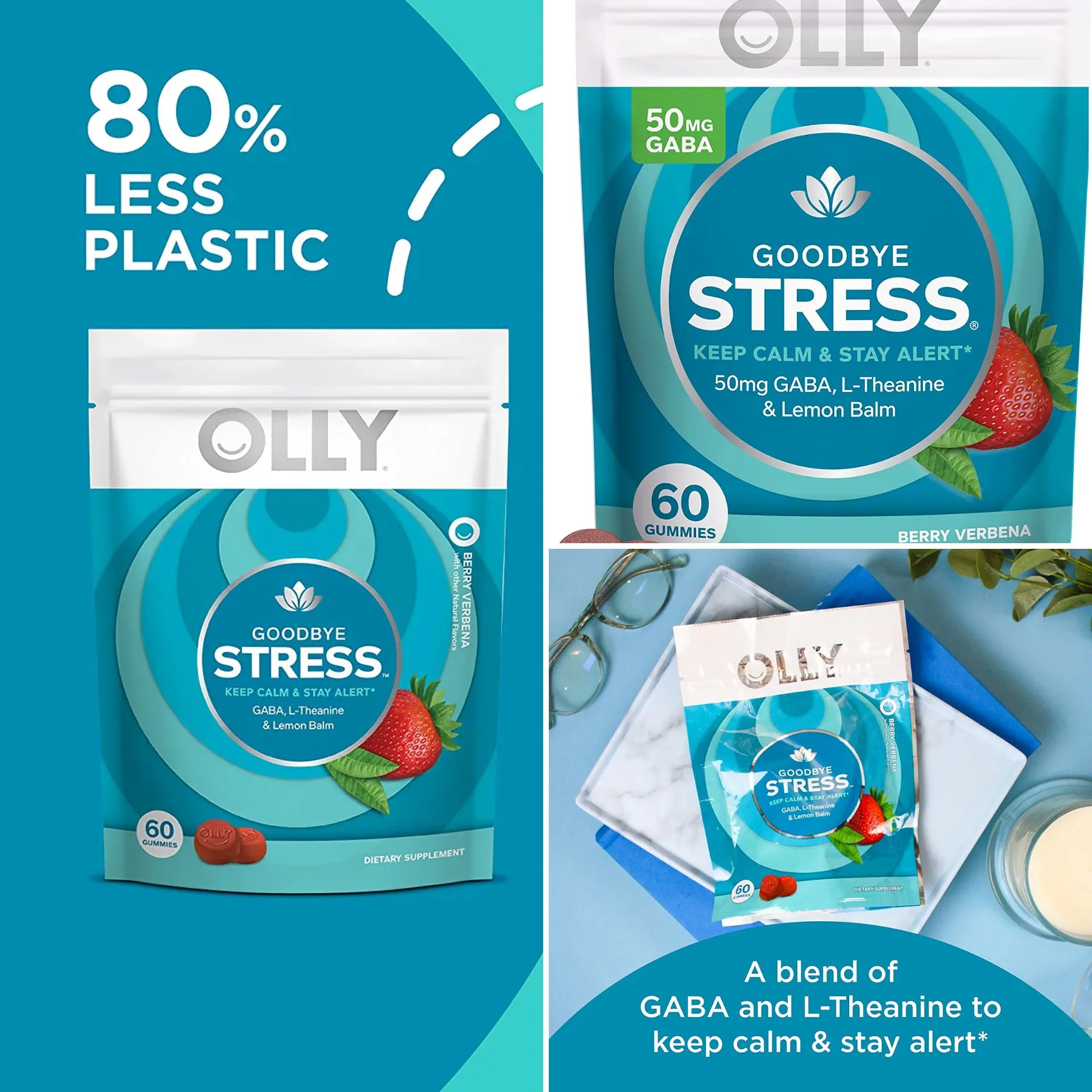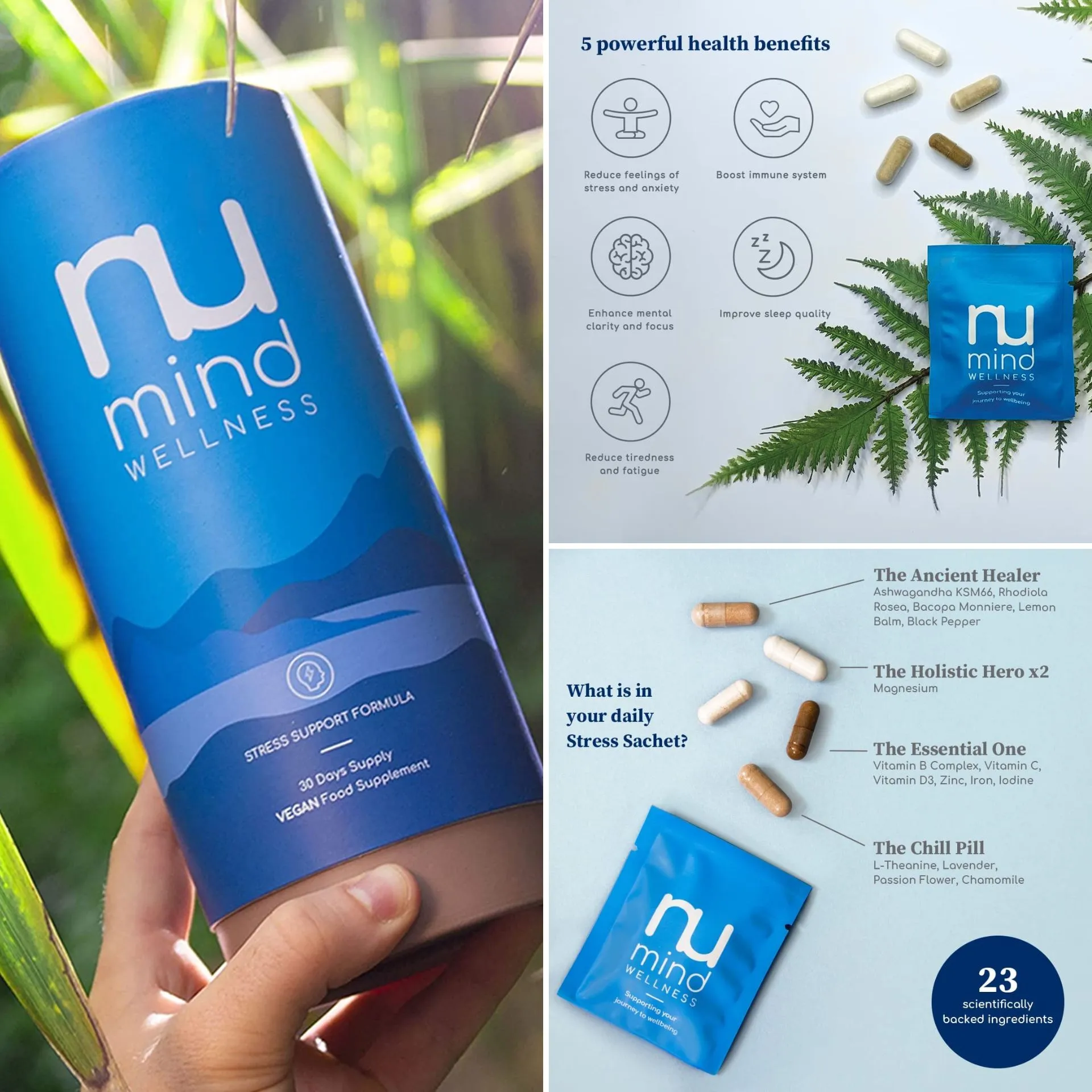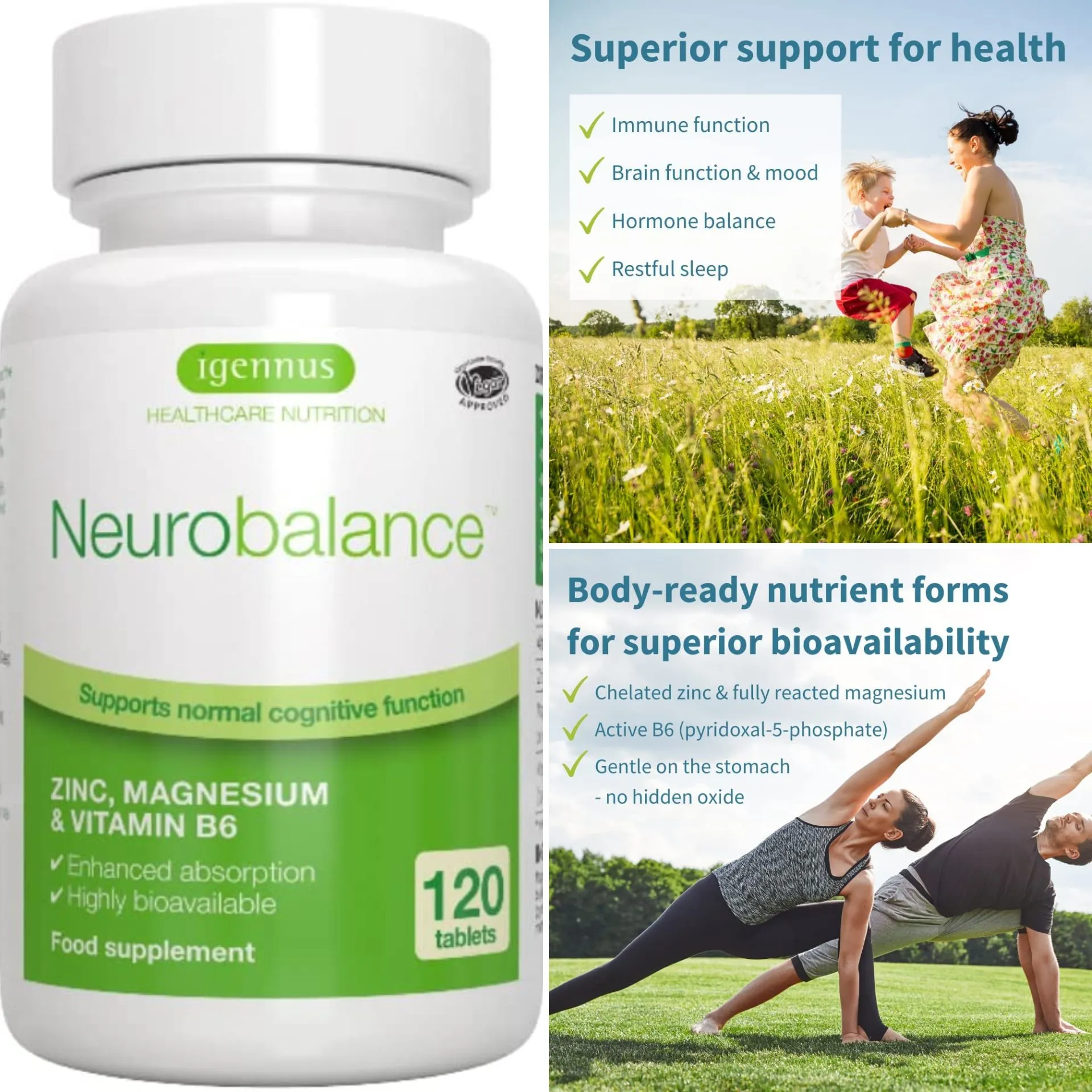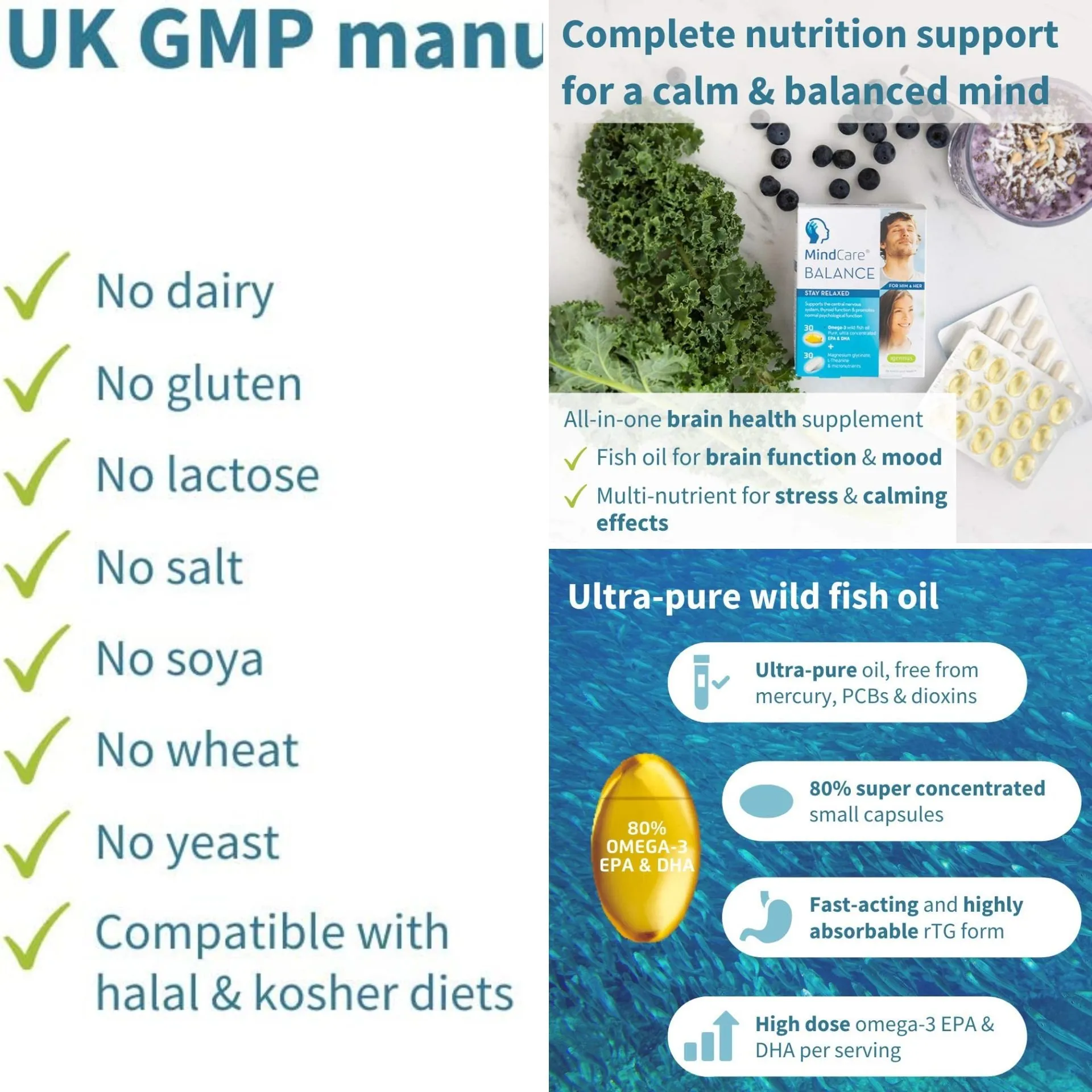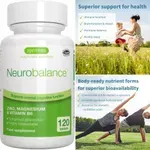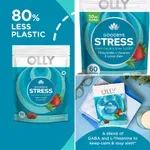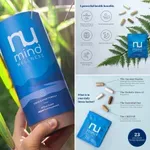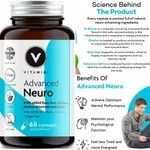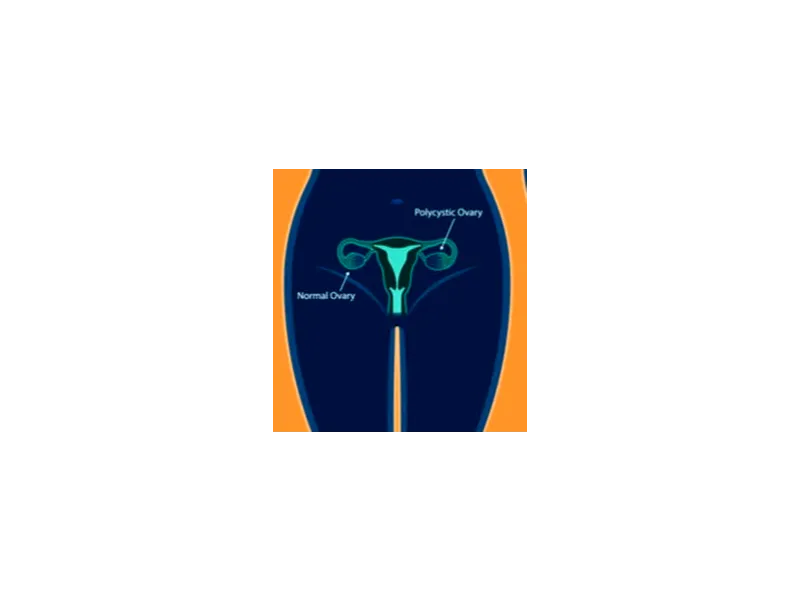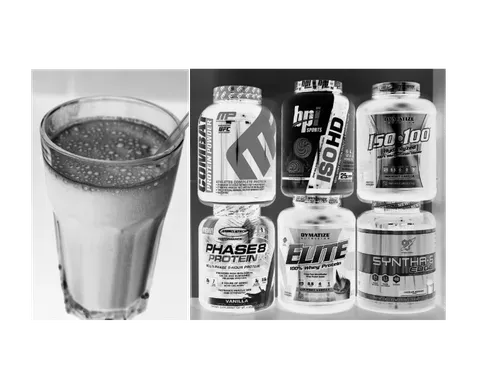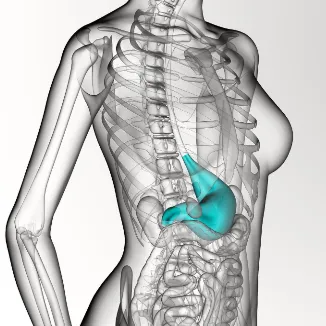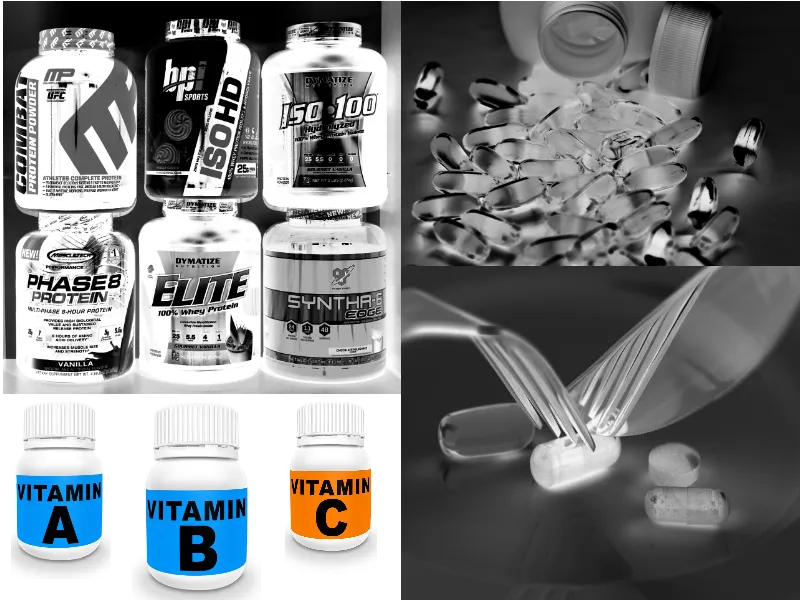Best Vitamins For Stress
How do stress relief supplements work?
Stress relief supplements are a great way to help reduce stress and its associated symptoms without the use of medication. These supplements work by providing your body with the vitamins, minerals, and other nutrients necessary to help cope with stressful situations. They often contain herbs like ginseng, ashwagandha, and valerian root which can help to relax the body, reduce anxiety, and improve overall wellbeing. Additionally, these supplements may also contain ingredients that can help reduce cortisol levels in the body, which is a hormone produced during times of stress. Ultimately, stress relief supplements can be an effective way to reduce symptoms of stress and improve your overall mental health.
These Top 5 make our Top Selection List:
How we choose:
We've read through & researched countless reviews on Amazon and other Authoritative Sources and Researched Data to find some of the best of the best Vitamins for stress supplements for immune support, muscle strength, muscle recovery, athletic endurance and sleep.
Why Advanced Neuro Brain Supplement
Made Our Best of The Best Top 5 & Why we love it
It is helpful & reassuring to know
Why OLLY Goodbye Stress Gummy
Made Our Best of The Best Top 5 & Why we love it
It is helpful & reassuring to know
Why Nu Mind Wellness
Made Our Best of The Best Top 5 & Why we love it
It is helpful & reassuring to know
Why Neurobalance
Made Our Best of The Best Top 8 & Why we love it
It is helpful & reassuring to know
Why MindCare Balance
Made Our Best of The Best Top 5 & Why we love it
It is helpful & reassuring to know
Knowledge Base
Reduce Stress
Best Vitamins
Supplements for Stress
Help Reduce Stress
Vitamins and Supplements
7 Best Vitamins
Stress and Anxiety
May Help
Stress Relief
May Help Reduce Stress
Supplements for Stress Relief
Best Vitamins and Supplements for Stress
- Vitamin C helps boost the immune system and can protect the body from disease.
- B vitamins are essential for energy production and proper functioning of the nervous system.
- Stress relief can be found through a variety of activities such as exercise, deep breathing and meditation.
- Reducing stress can be achieved through lifestyle changes, relaxation techniques and stress-management strategies.
- Stress and anxiety can be managed through healthy lifestyle habits, such as regular exercise and a nutritious diet.
- Best vitamins are those that offer the highest nutrient value, such as Vitamin A and Vitamin C.
- Supplements for stress may include herbal extracts, amino acids, and vitamins and minerals.
- Stress management involves a combination of techniques that help to identify and manage stressors.
- Help with stress may be found in the form of therapy, self-help books, and activity-based stress management.
- Vitamins and supplements can be beneficial in providing the body with essential nutrients and minerals.
- Herbal supplements are a popular form of dietary supplement that can be used to support health and wellness.
- Vitamin B is essential for maintaining healthy nerve cells and is important for proper functioning of the body.
- Vitamin E helps the body to maintain healthy skin and eyes, while also supporting the immune system.
- Supplements for stress relief such as B-complex vitamins, magnesium and Valerian root, can help reduce stress.
- Best vitamins and supplements for stress include B6, B12, omega-3 fatty acids and magnesium.
- Vitamins and supplements for stress may help to reduce stress levels, improve mood and support a healthy immune system.
- 4 vitamins that are important for reducing stress are B vitamins, Vitamin C, Vitamin D and magnesium.
- Stress-relief supplements such as B-complex vitamins, omega-3 fatty acids and Valerian root may help reduce additional stress.
- Reduce stress with lifestyle changes such as regular exercise and eating a balanced diet.
- B vitamin supplementation may help reduce stress and anxiety levels, as well as improve sleep quality.
- Stress and anxiety can be managed with lifestyle changes, relaxation techniques and stress-management strategies.
- Help reduce stress through positive self-talk, relaxation techniques, and regular exercise.
- Vitamin C is essential for boosting the immune system and protecting the body from disease.
- Stress hormone levels can be regulated through diet and lifestyle changes, and certain supplements may also help.
- Supplements for stress such as B-complex vitamins, omega-3 fatty acids, and Valerian root may help reduce stress.
- May help reduce stress levels by influencing the body’s stress response and providing essential vitamins and nutrients.
- Stress relief can be found through activities such as deep breathing, exercise, and meditation.
- Stress management includes a variety of strategies to identify and manage stressors.
- Amino acid supplements may help the body deal with stress by influencing neurotransmitter production.
- Green tea contains catechins, which may help reduce stress and improve mood.
- Help with stress can be found in the form of therapy, self-help books, and activity-based stress management.
- Also help reduce anxiety levels by providing essential vitamins and minerals, as well as influencing the body’s stress response.
- Manage stress and anxiety levels with healthy lifestyle habits such as regular exercise and a nutritious diet.
- Dietary supplement such as fish oil, magnesium, and B-complex vitamins may help lower stress levels.
- Lower stress by engaging in positive self-talk, relaxation techniques, and regular exercise.
- Chronic stress can be managed with the help of dietary supplements, vitamins, and herbal remedies.
- Anxiety levels can be reduced with lifestyle changes, relaxation techniques, and stress-management strategies.
- Randomized controlled trials have shown that B vitamin supplementation may help reduce depression and anxiety.
- Levels of stress can be managed with lifestyle changes, relaxation techniques, and stress-management strategies.
- Stress and anxiety levels can be reduced with lifestyle changes, relaxation techniques, and stress-management strategies.
- Herbal supplements such as St. John's Wort and Valerian root may help to reduce stress and improve sleep quality.
- Sleep quality can be improved with lifestyle changes, relaxation techniques, and stress-management strategies.
- Vitamin D deficiency can lead to an increased risk of stress and depression.
- Relieve stress with activities such as deep breathing, exercise and meditation.
- Vitamin supplements such as Vitamin C, Vitamin B and magnesium may help reduce stress and improve mood.
- May also help reduce stress levels by providing essential vitamins and nutrients, and influencing the body’s stress response.
- Energy levels can be increased with the help of vitamins and dietary supplements such as omega-3 fatty acids.
- Best vitamins for stress include B6, B12, omega-3 fatty acids and magnesium.
- Vitamins and supplements can be beneficial in providing the body with essential nutrients and minerals.
- Vitamins may help the body respond to stress by influencing neurotransmitter production.
- Vitamins are water-soluble, meaning that they are not stored in the body and need to be replenished regularly.
- Mild stress can be managed with lifestyle changes, relaxation techniques, and stress-management strategies.
- Stress without appropriate management can lead to a variety of physical and mental health issues.
- Decrease stress with positive self-talk, relaxation techniques, and regular exercise.
- B vitamin supplementation may help reduce stress and anxiety levels, as well as improve sleep quality.
- Stress and improve mood with lifestyle changes, relaxation techniques, and stress-management strategies.
- Taking vitamin D supplements may also help reduce stress and improve mood.
- Taking any new supplements to help with stress should be discussed with a healthcare provider.
- Levels of B vitamins can be measured with a blood test, and supplementation may help reduce stress and anxiety.
- May help relieve stress by providing essential vitamins and minerals, and influencing the body’s stress response.
- Reducing stress and anxiety can be achieved through lifestyle changes, relaxation techniques and stress-management strategies.
- Release of stress hormones can be regulated through diet and lifestyle changes, and certain supplements may also help.
- Ability to manage stress can be improved with lifestyle changes, relaxation techniques and stress-management strategies.
- Manage stress and anxiety levels with healthy lifestyle habits such as regular exercise and a nutritious diet.
- Associated with stress are a variety of physical and mental health issues, and managing stress is important for overall wellbeing.
- Supplements and stress management strategies can help to reduce stress levels and improve mood.
- Many B vitamins are essential for energy production and proper functioning of the nervous system.
- Vitamins and nutrients are important for reducing stress levels, improving mood and supporting a healthy immune system.
- Respond to stress positively by engaging in positive self-talk, relaxation techniques and regular exercise.
- Stress by influencing neurotransmitter production, vitamins may help the body deal with stress.
- Vitamins are water-soluble, meaning that they are not stored in the body and need to be replenished regularly.
- Mild stress can be managed with lifestyle changes, relaxation techniques and stress-management strategies.
- Stress without appropriate management can lead to a variety of physical and mental health issues.
- Decrease stress with positive self-talk, relaxation techniques, and regular exercise.
- B vitamin supplementation may help reduce stress and anxiety levels, as well as improve sleep quality.
- Stress and improve mood with lifestyle changes, relaxation techniques, and stress-management strategies.
- Taking vitamin D supplements may also help reduce stress and improve mood.
- Taking any new supplements to help with stress should be discussed with a healthcare provider.
- Levels of B vitamins can be measured with a blood test, and supplementation may help reduce stress and anxiety.
- May help relieve stress by providing essential vitamins and minerals, and influencing the body’s stress response.
- Reducing stress and anxiety can be achieved through lifestyle changes, relaxation techniques and stress-management strategies.
- Release of stress hormones can be regulated through diet and lifestyle changes, and certain supplements may also help.
- Ability to manage stress can be improved with lifestyle changes, relaxation techniques and stress-management strategies.
- Manage stress and anxiety levels with healthy lifestyle habits such as regular exercise and a nutritious diet.
- Associated with stress are a variety of physical and mental health issues, and managing stress is important for overall wellbeing.
- Supplements and stress management strategies can help to reduce stress levels and improve mood.
- Many B vitamins are essential for energy production and proper functioning of the nervous system.
- Vitamins and nutrients are important for reducing stress levels, improving mood and supporting a healthy immune system.
- A meta-analysis of B vitamin supplementation on depressive symptoms found that taking B vitamins may help reduce depression and anxiety.
- B vitamin supplementation on depressive symptoms showed that taking B vitamins may help reduce depression and anxiety.
- Additional stress can be managed with the help of dietary supplements, vitamins, and herbal remedies.
- The body’s stress response can be regulated through diet and lifestyle changes, and certain supplements may also help.
- It’s best to consult a healthcare provider before taking any new supplements to help with stress.
Vitamin C
B Vitamin
Stress Relief
Reduce Stress
Stress and Anxiety
Best Vitamins
Supplements for Stress
Stress Management
Help with Stress
Vitamins and Supplements
Herbal Supplements
Vitamin B
Vitamin E
Supplements for Stress Relief
Best Vitamins and Supplements
Vitamins and Supplements for Stress
4 Vitamins
Stress-Relief Supplements
Additional Stress
What are the best vitamins and supplements for stress relief?
When it comes to stress relief, many people look for the best vitamins and supplements that may help. Vitamin C, B-Complex, omega-3 fatty acids, magnesium, and ashwagandha are all excellent options for relieving stress. These vitamins and supplements contain essential vitamins and nutrients that can aid in calming the body and mind. Additionally, taking probiotics or prebiotics may also be beneficial in reducing stress levels. Herbal teas such as chamomile or lavender can also be helpful for those looking to relax their body and mind. Eating a balanced diet with plenty of fruits, vegetables, lean meats, whole grains, nuts, and seeds can provide additional vitamins and nutrients that will help reduce stress levels. Finally, exercising regularly is another great way to reduce stress levels while providing other health benefits as well.
How can vitamins help with stress?
Vitamins can help with stress by influencing stress levels. Taking a dietary supplement of vitamins can help reduce stress in the same way as other supplements. There are many vitamins that can help with stress, such as B-complex vitamins and vitamin C. B-complex vitamins are known to have effects on mood, while vitamin C helps the body cope with physical and mental stress. Additionally, magnesium helps to regulate hormones which can reduce levels of anxiety and fatigue associated with stress. Taking a daily multivitamin or supplement is an easy way to ensure you are getting enough of these essential vitamins and minerals for your body to handle stress more effectively.
Why Take Vitamins for Stress?
Taking vitamins for stress is a great way to help manage stress and anxiety. Taking supplements can help you deal with stress in the long run, as they can provide your body with essential nutrients that may help reduce stress-related symptoms. Vitamins for stress may also improve overall health and wellbeing, which can make it easier to cope during stressful times. Supplements can also give you an extra boost of energy and alertness, so you’re better equipped to handle any stressful situations that come your way. Overall, taking vitamins for stress is a great way to boost your mood and promote better stress management.
Do supplements help with stress and anxiety?
Supplements can help with stress and anxiety, as they are designed to work with the body’s natural chemistry to balance out hormones and other compounds that can lead to elevated levels of stress and anxiety. While there is no one-size-fits-all solution for dealing with stress and anxiety, supplements may be able to help by improving sleep quality, increasing energy levels, and reducing overall stress and anxiety levels. In addition, certain supplements may also be able to help reduce specific symptoms of stress or anxiety such as headaches, irritability, nervousness, or rapid heart rate. Before taking any supplement for stress and anxiety it is important to consult a doctor or health professional in order to ensure it will not interact negatively with any existing medications or conditions. Taking the right supplement at the right time may be able to significantly reduce your stress and anxiety levels.
Can Vitamins Help With Stress & Anxiety?
Vitamins can certainly help with stress and anxiety, as these are essential nutrients that the body needs to function properly. Vitamins can be used to increase levels of stress and decrease levels of anxiety in order to maintain a balanced mental state. Vitamin C and Vitamin E are believed to be the best vitamins for helping with stress and anxiety, as they both have powerful antioxidant properties that can boost immunity, reduce inflammation, and improve mood. Additionally, there are many other vitamins and supplements that may be beneficial in reducing stress levels, such as B-complex vitamins, omega-3 fatty acids, magnesium, zinc, and adaptogenic herbs. Taking the right combination of vitamins and supplements can help individuals better manage their stress and anxiety levels so they can live a healthier life.
Additional Stress Management Resources
Stress management is an important part of overall health and wellness. Additional stress management resources can help reduce stress and anxiety, improve sleep quality, and other health benefits. Taking a vitamin c supplement has been shown to help reduce stress in a randomized controlled trial. Additionally, certain amino acids may also help alleviate stress when taken as supplements. All of these resources can be used together to help reduce stress and create a healthier lifestyle. Stress management is an important part of self-care, so it’s important to make sure you are using the right resources to address any additional stress that arises. Taking the necessary steps to identify what works for you and using supplements can help manage your overall stress levels and promote a healthy lifestyle.
Alternative stress relief options
Stress relief is an essential part of managing stress levels. There are many alternative methods to help reduce and manage stress, such as deep breathing exercises, yoga, physical exercise, mindfulness meditation, and journaling. Deep breathing exercises can help to slow down your heart rate and relax your mind. Yoga can be an effective way to increase flexibility, improve posture, balance the body’s energy flow and focus on deep breaths. Physical exercise can provide a distraction from life stressors while releasing endorphins which make you feel better. Mindfulness meditation helps to focus on the present moment and release tension in the body. Journaling is also a great way to express emotions, gain clarity on thoughts and feelings and practice gratitude for everything you have in life. All of these activities can be incredibly helpful in reducing stress levels.
These 4 herbal supplements are nature’s stress remedies
These four herbal supplements are nature's stress remedies, providing a natural way to manage and reduce stress levels. They can help to lower stress by relieving it both physically and mentally. This is done by regulating the body's production of the stress hormone cortisol, which is released when we experience anxiety or stress. The herbs have calming effects on the body and mind, and can help to reduce tension in areas of the body where it has built up. As well as this, they can also help with sleep quality, which is often disrupted due to high-stress levels. By taking these natural supplements regularly, you will be able to manage your stress levels more effectively and enjoy greater peace of mind.
Choosing the Right Stress-Relief Supplements
When it comes to stress management, choosing the right stress-relief supplements is key. Stress relief supplements may help with improved sleep quality, as well as potentially reducing symptoms of depression and anxiety. It's important to consult a doctor before taking any kind of supplement, so you can ensure that the best supplement is chosen for your particular situation. Different supplements work differently for different people, so it's important to do your research and find out which ones are best suited for you. Additionally, if a supplement doesn't seem to be working right away, give yourself some time to see if the effects will become more noticeable over time.
Frequently asked questions about vitamins for stress and anxiety
Vitamins for stress and anxiety are becoming increasingly popular among those looking for natural ways to manage their levels of stress. While research on the effectiveness of vitamins for stress is not yet conclusive, many believe that certain vitamins can help alleviate stress and anxiety. B vitamins, in particular, are thought to be helpful in reducing levels of stress, while vitamin C has been linked to reductions in both anxiety and depression.
Studies have also suggested that other vitamins may be beneficial when it comes to managing anxiety and stress. However, it's important to remember that vitamins should never be used as a substitute for professional medical advice or treatment. If you're experiencing high levels of stress or anxiety, it's best to speak with your doctor about the best course of action for your particular situation.
11 supplements that may help stress
There are many supplements that have been claimed to help reduce stress or anxiety, but it's important to note that the effectiveness of these supplements can vary from person to person. Here is a list of 11 supplements that may help with stress or anxiety:
- Ashwagandha
- GABA (gamma-aminobutyric acid)
- L-theanine
- Lemon balm
- Magnesium
- Rhodiola
- Valerian root
- Chamomile
- St. John's wort
- Passionflower
- Holy basil
There are many supplements that may help with stress levels. Vitamin B is one of the most common supplements that may help reduce stress and anxiety. It helps to regulate hormones and chemicals in our bodies which can be affected by chronic stress. Other vitamins such as vitamin C, B-complex, and magnesium also play a role in helping to manage stress and anxiety levels. Some amino acids such as L-theanine and GABA may also help with stress management by calming the body and mind. Additionally, herbs like ashwagandha, licorice root, lemon balm, and chamomile may help reduce stress levels. All of these supplements may be taken together or individually depending on your needs. However, it is always recommended to consult with a healthcare provider before taking any supplement to ensure safety and effectiveness.
13 foods that help reduce anxiety
Eating certain foods can help reduce anxiety, stress and other related issues. Some of the best options to help with this are oatmeal, bananas, dark chocolate, yogurt, fatty fish, chamomile tea, whole grains, spinach, avocados, nuts and seeds, green tea, turkey and kimchi. Oatmeal is a great breakfast option as it helps to relax the body and mind due to its high levels of magnesium. Bananas contain vitamin B6 which helps produce serotonin which can help relieve stress. Dark chocolate is full of antioxidants which can reduce cortisol production that leads to anxiety.
Yogurt contains probiotics which promote gut health and balance out hormones associated with anxiety. Fatty fish such as salmon contains omega-3 fatty acids which have been linked to decreased stress levels. Chamomile tea is also known for its calming effects on the body and mind. Whole grains are a great source of complex carbohydrates that boost serotonin production in the brain thus reducing stress levels. Spinach contains magnesium which helps promote relaxation while avocados are rich in potassium and folate which both regulate moods and lessen anxiety symptoms.
Nuts and seeds are an excellent source of B vitamins that aid in reducing fatigue often associated with high levels of stress. Green tea is loaded with L-theanine which has been found to reduce anxiety while turkey contains tryptophan which helps induce sleepiness when consumed at night time. Finally Kimchi is also packed with probiotics that help lower cortisol levels linked to anxious feelings and thoughts.
Multivitamin-Mineral Supplements for Stress and Anxiety
Stress and anxiety can be debilitating, but fortunately, there are many ways people can reduce their stress. One option is to take multivitamin-mineral supplements for stress and anxiety. These supplements are formulated to provide your body with essential vitamins and minerals that help support a healthy mind and body, so that you can manage your stress more effectively. In addition to providing additional nutrition, these supplements may also help reduce stress levels by providing the nutrients needed to regulate hormones, improve immune health and strengthen the nervous system—all of which play a role in managing stress. By taking multivitamin-mineral supplements for stress and anxiety, you may be able to better cope with stressful situations and manage your overall mental wellbeing.
Other Proven Supplements for Anxiety and Stress
Anxiety and stress can be managed with the right supplements. Amino acids are known to help the body in managing symptoms of anxiety and stress. Vitamin C is also an important supplement for those suffering from these conditions. It helps to reduce the effects of stress on the body by improving overall wellbeing, as well as helping to improve mood and reduce tension. Other proven supplements for anxiety and stress include omega-3 fatty acids, magnesium, B vitamins, and valerian root. All of these have been proven to help with symptoms of anxiety and stress by helping the body cope better with the effects of stress. It’s important to speak with a medical professional before taking any supplements if you are concerned about interactions with medications or other health conditions.
What is the best natural stress reliever?
The best natural stress reliever is exercise. Exercise helps to reduce stress by releasing endorphins, which are hormones that reduce the body's stress response. Additionally, exercise can help to improve mood and increase the production of serotonin, a neurotransmitter associated with feelings of well-being. Other natural stress relievers include spending time in nature, practicing mindfulness meditation, listening to calming music, and engaging in relaxation techniques such as progressive muscle relaxation and deep breathing. Taking breaks throughout the day to relax can also be beneficial for reducing stress levels. Other activities like getting enough sleep, journaling or talking about your feelings with a friend or family member can also help alleviate feelings of stress.
What is best way to cure stress naturally?
The best way to cure stress naturally is to practice relaxation techniques such as yoga, tai chi, or deep breathing exercises. These activities can help to relax the body and mind and reduce stress levels. Additionally, it is important to find time for yourself each day in order to relax and unwind from the stresses of life. Going for a walk in nature, meditating, and reading are all great ways to help ease stress naturally. Finally, getting enough sleep each night is essential for reducing stress levels as well as maintaining physical and mental health. By taking time for yourself and engaging in relaxing activities, you can effectively reduce your stress levels naturally.
What can I take daily for stress?
There are several things you can try if you are looking to reduce stress on a daily basis:
- Exercise regularly: Physical activity can help reduce stress and improve your overall well-being.
- Practice relaxation techniques: Techniques such as deep breathing, meditation, or yoga can help you relax and manage stress.
- Get enough sleep: Lack of sleep can increase stress, so it's important to get a good night's rest.
- Eat a healthy diet: A healthy diet can help you feel better physically and mentally.
- Take breaks and make time for leisure activities: Taking breaks from work or other obligations and engaging in activities you enjoy can help reduce stress.
- Talk to someone: Sharing your thoughts and feelings with a friend, family member, or therapist can be a helpful way to manage stress.
It's also important to note that what works for one person may not work for another. It may take some trial and error to find the stress-reduction techniques that work best for you. If you are struggling with stress, it's a good idea to speak with a healthcare professional for additional guidance and support.
What supplement calms stress?
There are several supplements that have been claimed to help reduce stress or anxiety, but it's important to note that the effectiveness of these supplements can vary from person to person. Some supplements that have been suggested for reducing stress or anxiety include:
- Ashwagandha
- GABA (gamma-aminobutyric acid)
- L-theanine
- Lemon balm
- Magnesium
- Rhodiola
- Valerian root
It's important to speak with a healthcare professional before taking any supplements, as they can interact with certain medications and may have side effects. It's also important to note that supplements are not intended to be a replacement for proven stress-management techniques such as exercise, relaxation techniques, and getting enough sleep.
What is the best vitamin to help with stress?
There is no one "best" vitamin for reducing stress, as different people may respond to different supplements differently. However, some vitamins and minerals have been suggested to help with stress or anxiety. These include:
- Vitamin B complex: B vitamins, particularly B12 and folic acid, may help with stress and anxiety.
- Vitamin C: Vitamin C is an antioxidant that may help reduce the physical effects of stress on the body.
- Vitamin D: Low levels of vitamin D have been linked to an increased risk of anxiety and depression.
- Magnesium: Magnesium is involved in many processes in the body and is necessary for proper nerve and muscle function. Some research suggests that magnesium supplements may help reduce anxiety.
It's important to speak with a healthcare professional before taking any vitamin or mineral supplements, as they can interact with certain medications and may have side effects. It's also important to note that supplements are not intended to be a replacement for proven stress-management techniques such as exercise, relaxation techniques, and getting enough sleep.
Which vitamin deficiency causes stress and anxiety?
There is no one specific vitamin deficiency that causes stress and anxiety, but some research suggests that certain vitamin and mineral deficiencies may be associated with an increased risk of anxiety or other mental health problems. For example:
- Low levels of vitamin B12 and folic acid have been linked to an increased risk of anxiety and depression.
- Low levels of vitamin D have been linked to an increased risk of anxiety and depression.
- Low levels of magnesium have been linked to an increased risk of anxiety and other mental health problems.
It's important to note that vitamin and mineral deficiencies are just one possible factor that may contribute to the development of anxiety or other mental health problems. Other factors, such as genetics, environment, and life experiences, also play a role. If you are concerned about a potential deficiency or are experiencing symptoms of anxiety or other mental health problems, it's a good idea to speak with a healthcare professional for further evaluation and treatment.
How do I get over stress and anxiety?
Here are a few strategies you can try to help reduce stress and anxiety:
- Exercise regularly: Physical activity can help reduce stress and improve your overall well-being.
- Practice relaxation techniques: Techniques such as deep breathing, meditation, or yoga can help you relax and manage stress.
- Get enough sleep: Lack of sleep can increase stress, so it's important to get a good night's rest.
- Eat a healthy diet: A healthy diet can help you feel better physically and mentally.
- Take breaks and make time for leisure activities: Taking breaks from work or other obligations and engaging in activities you enjoy can help reduce stress.
- Talk to someone: Sharing your thoughts and feelings with a friend, family member, or therapist can be a helpful way to manage stress.
- Practice stress-management techniques: There are many stress-management techniques you can try, such as time management techniques, setting limits, and problem-solving strategies.
It may take some time and effort to find the strategies that work best for you. If you are struggling with stress or anxiety, it's a good idea to speak with a healthcare professional for additional guidance and support. They can help you identify the causes of your stress and develop a treatment plan that is right for you.
What vitamin is good for anxiety and mood swings?
There is no one specific vitamin that is consistently effective for reducing anxiety or mood swings, as different people may respond to different treatments differently. However, some vitamins and minerals have been suggested to have a positive effect on mood and may be helpful for reducing anxiety or mood swings. These include:
- Vitamin B complex: B vitamins, particularly B12 and folic acid, may help with anxiety and mood disorders.
- Vitamin C: Vitamin C is an antioxidant that may help reduce the physical effects of stress on the body.
- Vitamin D: Low levels of vitamin D have been linked to an increased risk of anxiety and depression.
- Magnesium: Magnesium is involved in many processes in the body and is necessary for proper nerve and muscle function. Some research suggests that magnesium supplements may help reduce anxiety.
It's important to speak with a healthcare professional before taking any vitamin or mineral supplements, as they can interact with certain medications and may have side effects. It's also important to note that supplements are not intended to be a replacement for proven stress-management techniques such as exercise, relaxation techniques, and getting enough sleep.
Is vitamin B12 good for stress?
There is some evidence that vitamin B12 may help with stress and anxiety. Vitamin B12 is a member of the B vitamin family, which is important for proper nerve function and the production of red blood cells. A deficiency in vitamin B12 can lead to fatigue, weakness, and mood changes, and some research suggests that supplementing with B12 may help reduce the symptoms of anxiety and depression.
However, it's important to note that more research is needed to fully understand the relationship between vitamin B12 and stress. It's also important to speak with a healthcare professional before taking any supplements, as they can interact with certain medications and may have side effects. It's also important to note that supplements are not intended to be a replacement for proven stress-management techniques such as exercise, relaxation techniques, and getting enough sleep.
What vitamins help stress and fatigue?
There is no one specific vitamin that is consistently effective for reducing stress and fatigue, as different people may respond to different treatments differently. However, some vitamins and minerals have been suggested to help with stress and fatigue. These include:
- Vitamin B complex: B vitamins, particularly B12 and folic acid, may help with stress and fatigue.
- Vitamin C: Vitamin C is an antioxidant that may help reduce the physical effects of stress on the body.
- Vitamin D: Low levels of vitamin D have been linked to an increased risk of anxiety and depression, which can contribute to feelings of fatigue.
- Magnesium: Magnesium is involved in many processes in the body and is necessary for proper nerve and muscle function. Some research suggests that magnesium supplements may help reduce fatigue.
Here is more information on these vitamins and minerals:
- Vitamin B complex: B vitamins are a group of water-soluble vitamins that play important roles in energy metabolism and the functioning of the nervous system. B12 and folic acid are two specific B vitamins that have been suggested to help with stress and fatigue. A deficiency in B12 or folic acid can lead to fatigue, weakness, and mood changes, and some research suggests that supplementing with these B vitamins may help reduce the symptoms of anxiety and depression.
- Vitamin C: Vitamin C is an antioxidant that helps protect cells from the damage caused by free radicals. It is important for the functioning of the immune system and the production of collagen, a protein that helps support the skin and connective tissues. Some research suggests that vitamin C may help reduce the physical effects of stress on the body, although more research is needed to confirm this.
- Vitamin D: Vitamin D is a fat-soluble vitamin that is important for bone health and the functioning of the immune system. It can be synthesized by the skin when it is exposed to sunlight, and it can also be obtained from certain foods or supplements. Low levels of vitamin D have been linked to an increased risk of anxiety and depression, which can contribute to feelings of fatigue.
- Magnesium: Magnesium is a mineral that is involved in many processes in the body, including protein synthesis, muscle and nerve function, and bone development. It is necessary for proper nerve and muscle function, and some research suggests that magnesium supplements may help reduce fatigue. However, more research is needed to fully understand the relationship between magnesium and fatigue.

